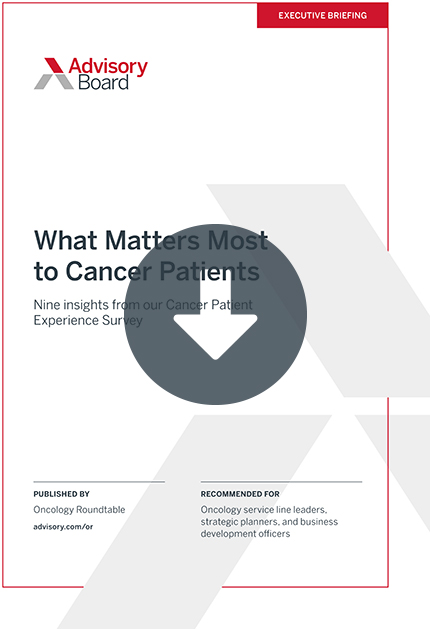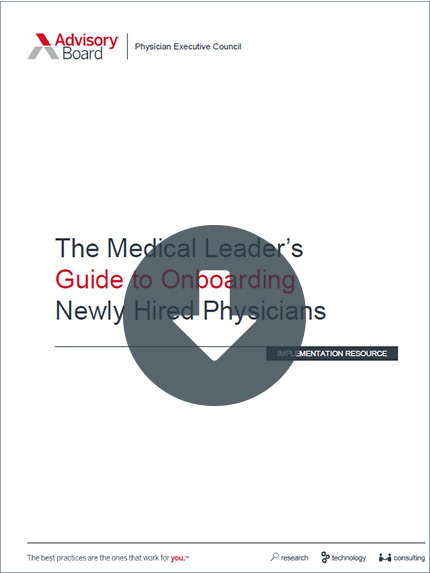Auto logout in seconds.
Continue LogoutWhen Mikkael Sekeres, an oncologist, accepted a job at a different facility in a new state, he knew it would be tough to say goodbye to his colleagues—but he hadn't realized how difficult it would be to say goodbye to his patients, he writes for the New York Times' "Well."
What matters most to cancer patients
'I can't believe you're leaving me'
When Sekeres, who was working at the Cleveland Clinic, accepted to an offer to join the Sylvester Comprehensive Cancer Center at the University of Miami Miller School of Medicine as chief of the division of hematology, he "knew how difficult it would be to tell the other doctors, nurses, pharmacists and social workers" he was working with, a "team from whom [he] had learned so much and relied upon so heavily for years," he writes. But he hadn't "anticipate[d] how hard it would be to tell [his] patients," Sekeres notes.
"For some with longstanding, chronic cancers, it was like saying goodbye to a beloved friend or a comrade-in-arms, as if we were reflecting on having faced down an unforgiving foe together, and had lived to tell about it," Sekeres writes.
For example, when Sekeres told one of his patients whom he'd met nearly 17 years ago about his departure, the patient reminisced on moments they had shared together.
"'I've known you since 2003,'" the patient told Sekeres. The patient said that she remembered first learning she had leukemia during her initial visit with Sekeres, who at that time "was freshly out of [his] fellowship training in hematology-oncology … and still nervous every time [he] wrote a prescription for chemotherapy on [his] own, without an attending's co-signature," he writes.
Sekeres recalls writing the woman a prescription for the chemotherapy imatinib, which hadn't been on the market for very long but, according to a 2003 study, had helped 95% of patients with her type of leukemia achieve remission. Because the researchers who conducted the study had followed patients on average for only a year and half, Sekeres recalled that he "couldn't predict for her how long the drug might work in her case." However, "[s]eventeen years later, she was still in a remission," Sekeres notes.
Over the years, Sekeres and the patient "had grown older together," he writes. The patient, for example, "had retired from her job as a nurse, undergone a couple of knee replacements, and had a cardiac procedure to treat her atrial fibrillation," Sekeres writes. Meanwhile, Sekeres raised his three sons and a daughter, two of whom had been born during the patient's treatment. And the patient "welcomed" grandchildren "into the world during the same time," Sekeres writes.
After they looked back on their time together, the patient softly said, "'I can't believe you're leaving me,'" Sekeres writes.
According to Sekeres, it was different saying goodbye to his patients who were still receiving treatment for a leukemia that hadn't yet entered remission. "I felt as if I were betraying them in medias res," Sekeres writes. "I spent a lot of time reviewing their treatment plans and reinforcing how I would transition their care to another doctor, probably more to reassure myself than my patients, that they would be OK."
And a few of his patients "were angry" when they learned he was leaving, according to Sekeres. He writes that his hospital had "sent out a letter informing patients of [his] departure and offering the option to choose any one of eight other doctors who could assume their care—even before [he] had a chance to tell some of them in person." His patients didn't understand why he hadn't told them about his departure or how they were expected to choose their new doctor, Sekeres writes.
Sekeres understood their concerns. To address them, he "quickly sent out [his] own follow-up letter offering to select a specialist for their specific types of cancer and telling [his] patients [he] would miss them," Sekeres writes. Then, he "spent weeks apologizing, in person, for the first letter," Sekeres notes.
And although Sekeres "always tell[s his] patients the best gift [he] could ever hope for is their good health, many brought presents or cards" for him, he writes. For example, Sekeres recalls that one of his patients, whom he'd been treating "for a leukemia that kept coming back," entered his exam room saying, "'I can't believe you're leaving me,'" and then handed him "a plain brown bag with some white tissue paper poking out of the top."
Inside the bag, Sekeres found "a drawing of the steel truss arches of Cleveland's I-90 Innerbelt bridge, with the city skyline rising above it," he writes. As the patient began to cry, he told Sekeres, "'You can hang this on your office wall in Miami. So you'll always remember Cleveland'," Sekeres writes.
Then, the patient gave Sekeres "a huge bear hug" for a few seconds—"Covid-19 precautions be damned," Sekeres writes.
Tearing up, Sekeres told the patient, "'No, I'll hang up the picture and always remember you,'" he writes (Sekeres, "Well," New York Times, 1/14).
Get the top nine insights from our Cancer Patient Experience Survey.

Cancer patients have more choices for their care than ever before. To differentiate your program in this increasingly competitive landscape, you must invest your limited resources in the right services—ones that will both attract patients to your program and retain them throughout their treatment. To help, we surveyed over 1,200 cancer patients diagnosed in the last five years to understand how they choose oncology providers and what matters most to them across their experience with cancer.
Read our briefing to get the top nine insights from our Cancer Patient Experience Survey.
Don't miss out on the latest Advisory Board insights
Create your free account to access 1 resource, including the latest research and webinars.
Want access without creating an account?
You have 1 free members-only resource remaining this month.
1 free members-only resources remaining
1 free members-only resources remaining
You've reached your limit of free insights
Become a member to access all of Advisory Board's resources, events, and experts
Never miss out on the latest innovative health care content tailored to you.
Benefits include:
You've reached your limit of free insights
Become a member to access all of Advisory Board's resources, events, and experts
Never miss out on the latest innovative health care content tailored to you.
Benefits include:
This content is available through your Curated Research partnership with Advisory Board. Click on ‘view this resource’ to read the full piece
Email ask@advisory.com to learn more
Click on ‘Become a Member’ to learn about the benefits of a Full-Access partnership with Advisory Board
Never miss out on the latest innovative health care content tailored to you.
Benefits Include:
This is for members only. Learn more.
Click on ‘Become a Member’ to learn about the benefits of a Full-Access partnership with Advisory Board
Never miss out on the latest innovative health care content tailored to you.

